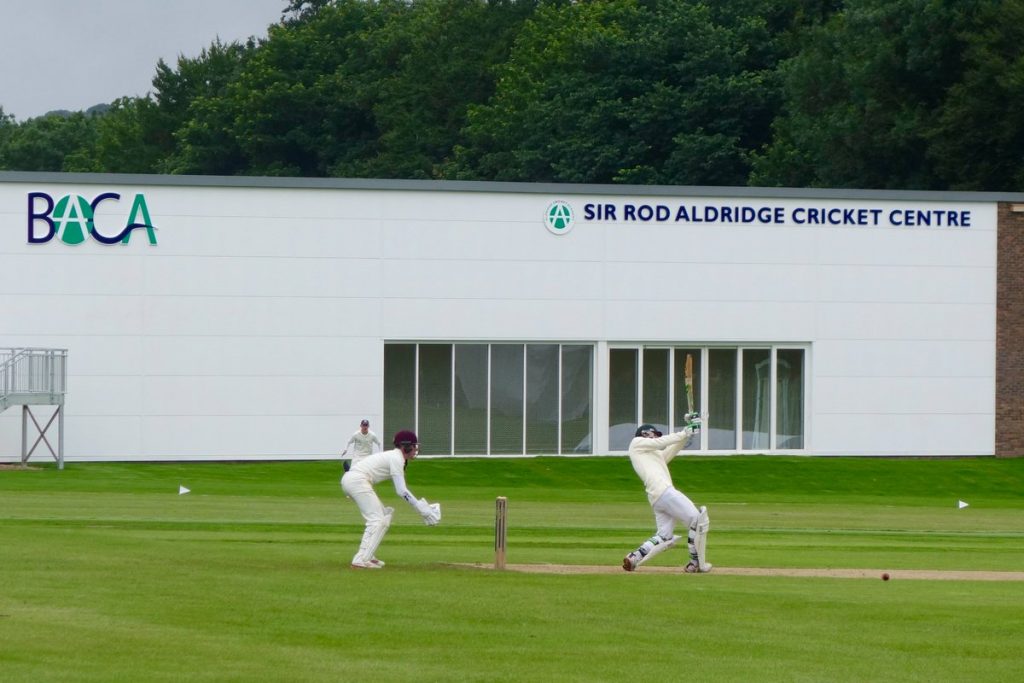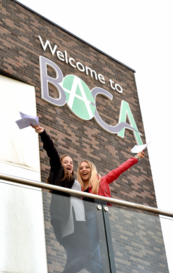A Brighton school requires improvement, according to a report by the education watchdog Ofsted today (Wednesday 17 May).
The rating for the Brighton Aldridge Community Academy (BACA) is better than when the school was inspected last year and found to be inadequate.
It was placed in special measures a year ago and a new head, Jack Davies, took charge. But today Ofsted said: “The school no longer requires special measures.”
The report said that absence rates remained too high, a minority students behaved badly and this affected others and children with special needs required more help in mainstream lessons.
BACA principal Jack Davies wrote to parents last week to share feedback from Ofsted. He said: “Please let’s not forget how far the academy has come.
“The opening of the last report detailed ‘Pupils say that they do not feel safe or respected in school. Many consider bullying, racism, sexism and homophobia to be commonplace and unchallenged by leaders and staff.’
“What is written in the updated Ofsted report is the opposite opinion from the above.
“My favourite line from the report is in the next paragraph about how ‘Bullying is not tolerated. Leaders take appropriate action when there are issues.’
“I am not naive enough to believe that no issues take place in the academy but (since) the last full inspection we have worked hard on the students having a trusted adult. I am pleased that this was recognised by the inspection team.”
Mr Davies said that Ofsted had recognised that BACA was “an improving school”.
The report also mentioned the school’s joint work with Brighton and Hove Albion and Sussex Cricket but “did not mention all of the work we are doing with the local universities and also the East Brighton Trust”.
Mr Davies added: “I am very aware that this is only the start of the journey. The academy being in ‘requires improvement’ now gives my team and I a number of years until the next inspection. We will work closely with the areas where Ofsted has identified.
“I have felt nothing but support since starting at the academy so I just wanted to thank you all. To be out of special measures in just over 10 months since I started at the academy shows monumental support from students, staff and families.”

Ofsted said: “Pupils learn in a largely calm and orderly environment. Teachers expect pupils to reach ambitious goals. Pupils have positive aspirations for the future and receive effective guidance to fulfil them.
“They enjoy a wide range of enrichment opportunities, including through a set of experiences known as the ‘BACA 100’ and a variety of clubs that they can attend.
“Links with external organisations, such as Brighton and Hove Albion football club and Sussex Cricket through the Aldridge Cricket Academy, help nourish pupils’ talents. Equally, school productions and musical and arts events are popular and successful.
“Bullying is not tolerated. Leaders take appropriate action when there are issues. Pupils confidently raise any worries they have, especially with their designated ‘trusted adult’.
“All year 7 pupils have mentors who support them to make a positive start to school life. Pupils respond well to the rewards they receive for good attendance and behaviour.
“Pupils feel much safer at school. Adults provide high levels of supervision at social times. Although most pupils behave well in lessons and around the school, a minority do not. This worries other pupils and sometimes disrupts their learning.
“Not all pupils achieve what they should, partly because too many miss school too often.”

Ofsted also said: “This is an improving school. Dynamic leadership in the school has raised expectations of pupils’ education and behaviour since the last full inspection.
“Leaders know what the key issues are and take the right actions to address them. Those responsible for governance monitor progress very carefully and challenge leaders robustly.
“The majority of staff are very positive about working at the school.
“Leaders engage with parents and carers constructively and regularly, meaning that a growing majority of parents are supportive of the school.
“Leaders’ high expectations are not yet fully realised in practice. Although they have established an ambitious curriculum in years 7 to 11, pupils’ achievement varies. Some pupils learn in depth but for others this is more superficial.
“Importantly, pupils with special educational needs and/or disabilities (SEND) do not routinely get the specific support that they need to achieve well.
“Teachers in mainstream lessons know what these pupils’ specific needs are but are not using this information to adapt lessons precisely enough.
“This contrasts with effective provision in the Swan Centre for pupils with education, health and care plans.

“Additionally, while pupils who are weaker readers get valuable additional help outside of lessons, the tasks that they are set in lessons do not take their needs into account consistently well.
“Leaders set clear rules about pupils’ conduct and attendance. Consequently, rates of behaviour incidents and suspensions have fallen since the inspection in March 2022.
“Despite this, not all pupils behave well in lessons and around the school. Staff work hard to manage pupils’ behaviour but some do not follow the processes leaders have put in place to maintain high expectations.
“A small proportion of staff do not feel that they get the support they need to deal with behaviour issues effectively.
“Absence rates remain high, especially for older pupils and some vulnerable pupils.
“This often means that pupils’ achievement is affected, including in year 11, as well as their involvement in the provision the school makes for their personal development.
“Leaders have tackled low levels of attendance for some individual pupils successfully.

“Students’ achievement in the sixth form is strong. Here, the curriculum is carefully designed to meet students’ different needs and ambitions.
“Teachers’ strong subject knowledge contributes to students’ successful learning, whether in vocational or academic subjects. Students value the feedback teachers give them and act on it.
“They also appreciate the advice and guidance that they get that supports them to secure future education, employment or training when they leave school.
“Pupils’ personal development is a strength of the school. Pupils view their learning about a range of relevant topics in personal, social and health education lessons positively.
“They value respect and diversity, aspects which are explored extensively during tutor periods and in assemblies.
“Effective careers education fuels pupils’ ambitions for the future. Along with the considerable investment in enrichment activities and extra-curricular opportunities, this reflects leaders’ fervent commitment to establishing an aspirational culture.”
Ofsted also said: “The arrangements for safeguarding are effective. Leaders … make sure that staff have up-to-date knowledge and expertise to identify any potential concerns and report them swiftly.
“When any issues arise, leaders act promptly to make sure the right support is in place for pupils, including by liaising with external agencies. Leaders check on the welfare of pupils who are absent and those who attend alternative provision.”
In a section headed “What does the school need to do to improve?” Ofsted said: “Pupils’ achievement is variable. Teachers’ checks on pupils’ learning are not fully effective across all subjects in addressing gaps in pupils’ knowledge.
“Leaders should ensure that the strongest practice in the school becomes the norm so that pupils’ outcomes improve further.
“The curriculum for pupils with SEND is not adapted consistently well in mainstream lessons. While teachers have more information about pupils’ specific needs, this does not translate into the right support in lessons often enough.
“Leaders should improve provision for pupils with SEND further so that they achieve the best possible outcomes.
“Although many pupils behave well around the school and engage purposefully with their work in lessons, some do not. This affects both their own learning and school life for other pupils.
“Leaders should ensure that their high expectations for pupils’ behaviour are implemented fully and that they provide all staff with the support that they need to do this.
“Too many pupils miss too much school, including some more vulnerable pupils. This has a negative impact on their achievement and their personal development.
“Although leaders have improved the attendance of some pupils, their efforts need to intensify to reduce levels of absence more.”
The school was inspected over two days – on Tuesday 21 March and Wednesday 22 March – by a team of three inspectors.
They said that the school’s leadership and management was good – as was personal development and the sixth-form provision. There were 847 pupils on the school roll 847 including 112 sixth formers.
But, the inspectors said, the quality of education “requires improvement” as do behaviour and attitudes. And overall, Ofsted’s verdict was “requires improvement”, compared with “inadequate” a year ago.
To read the latest Ofsted report in full, click here.
To find previous Ofsted inspection reports for BACA, click here.








